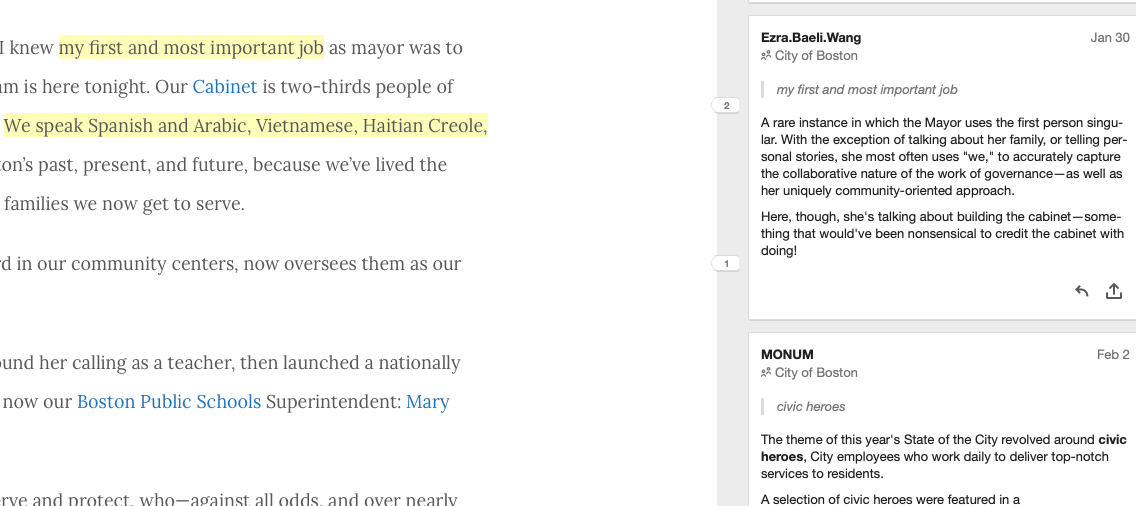Helter Skelter, in Corporate Communication
December 08, 2022
Thirty years' worth of disorder and confusion in corporate leadership communication. Or as we call it now: Wednesday.
When I started covering corporate communications as a baby trade journalist back in the early 1990s, here is what my colleagues and I considered big stories:
• An editor of an employee newsletter convinced her boss (and her boss convinced his boss and his boss convinced his boss!) to publish letters to the editor, including an occasional mild criticism of the parking policy. We could really have a field day with a story like that.
• A company established a program where an employee could leave an anonymous voice mail message that the communicator transcribed and shared judiciously with top executives. (It was also considered cutting-edge to offer “Employee Suggestion Boxes,” at least until we saw the Onion headline, “Best Buy’s Employee Suggestion Box Brimming With Urine.”)
• A CEO held an employee town hall meeting: That was a juicy case study. (Such meetings are now de rigueur, but called “all-hands meetings” except for at least one company, where I recently learned they’re changing the name because “not everybody has hands.”)
But for most of my career, that was about it, as far as things happening in corporate communication that would rise to the level of being interesting to anyone outside the business.
Now: Here were the first three stories in the (useful and free) Executive Communication Report Wednesday!
Meta Head of HR Lori Goler announced new “community engagement expectations” yesterday that forbade some subjects from discussion inside the company, Fortune reports. “As [CEO] Mark [Zuckerberg] mentioned recently, we need to make a number of cultural shifts to help us deliver against our priorities,” Goler wrote. “We’re doing this to ensure that internal discussions remain respectful, productive, and allow us to focus. This comes with the trade-off that we’ll no longer allow for every type of expression at work, but we think this is the right thing to do for the long-term health of our internal community.” Effective immediately and applying to “everyone at Meta,” the new engagement rules demand internal discussions adhere to three “core principles,” according to Fortune: “focus on the mission, work with respect, and protect company information.” Goler listed conversation topics “that can no longer be discussed at work based on what we’ve seen to be very disruptive in the past”; according to Fortune, they include “health matters such as vaccine efficacy and abortion, legal matters such as pending legislation, political matters such as elections or political movements, and weapon ownership and rights.” A Meta spokesperson told Fortune in a statement: “We deeply value expression, open discussion, and a company culture built on respect and inclusivity. We’ve updated our employee expectations to provide direction around what is appropriate for our people in the workplace, so that we can reduce distractions while maintaining an environment that is respectful and inclusive and where people can do their best work.”
Meta HR Head Goler also announced a change in the way the company will address public policy issues externally. “We are often asked to sign on to advocacy letters on topics that are important, but not directly connected to our work,” Goler wrote. “This can distract us from focusing on issues that are not central to our mission. So going forward, as a company we will only make public statements on issues that are core to our business, meaning they are required in order to provide our service.”
Exxon Mobil CEO Darren Woods said that unlike many of its competitors, his company isn’t shifting its strategy to invest in renewable energy, The Wall Street Journal reports. Speaking at the WSJ’s CEO Council 2022 yesterday, Woods said he doesn’t expect the demand for oil and gas to peak for several decades, and since Exxon Mobil doesn’t have a competitive advantage in renewables, it’s focusing solely on producing fossil fuels. “If the world needs oil and gas, which it does, who best to produce it,” Woods said. “Our view is, as long as oil and gas is going to be needed … we want to be the ones best positioned to provide that.”
Just to sum up the significance of all that:
The bosses of the company that asks three billion users every day, “What’s on your mind?” just walked over to a water cooler where all their employees were standing and basically told everybody to shut up and get back to work—and not to be caught talking about anything but work ever again. In this day and age.
Perhaps more bracing, at least to a feller who’s been reading and reluctantly publishing decades of dull, disingenuous speeches from oil executives pledging their sincere intention to contribute to a responsible, balanced energy transition, the boss at Exxon Mobil just said, “You know what, we are drilling for oil until we are driven out of business.” One does wonder how this inspiring mission might affect the company’s ability to recruit bright-eyed and the bushy tailed engineers. But the honesty is refreshing!
Oh, and back to Meta, where smack in the middle of a dynamic global debate over stakeholder capitalism and what it asks of CEOs as citizens, this prominent and culturally influential company just flatly announced its blanket public-policy communication approach:
Meanwhile, I decided I didn’t have space (and ECR readers didn’t have head space) for a story about Republican Senator Tom Cotton’s recent dressing down of Kroger CEO Rodney McMullen for the company’s “woke” policies which he said led Kroger to fire two employees for refusing to wear aprons with a heart and various colors because the employees thought the aprons were supportive of LGBTQ+ community.
Said Cotton: “I’ve cautioned [CEOs] for years that if they silence conservatives and center-right voters … if they discriminate against them in their company, they probably shouldn’t come and ask Republican senators to carry the water for them whenever our Democratic friends want to regulate them or block their mergers. … I’ll say this: ‘I’m sorry this is happening to you. Best of luck.’”
And this is all taking place on an Alice-in-Wonderland movie set that my brain is as yet not quite able to comprehend, where corporate “Environment, Sustainability and Governance” programs, originally established as variably sincere PR window-dressing, are being discussed only internally at lots of companies, so severe is the public “blowback” from investors who think any corporate activity not fiercely related to quarterly profit maximization is yet more “woke” bullshit.
Lest you think all of the above is foolish fodder for Fortune and The Wall Street Journal (and the Executive Communication Report): I had a rising young communicator approach me at a recent event and politely whisper for my advice on finding a job at a company that’s “less political.” Less conservative, I was sure she must mean—for she works at one of the largest and most traditional companies in the world. No, it finally occurred to me once I read between her teeth (and looked up her background): less liberal.
After 30 years of writing about corporate communication, you’d think I’d be tired of this beat.
But honestly, I’m just trying to keep up.
How are you getting along?





